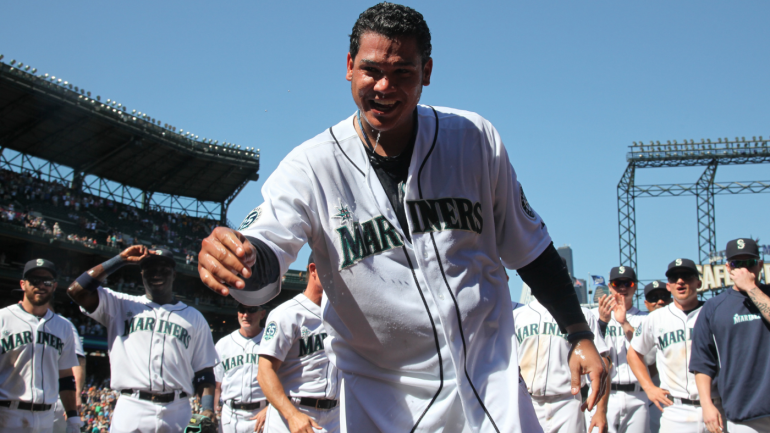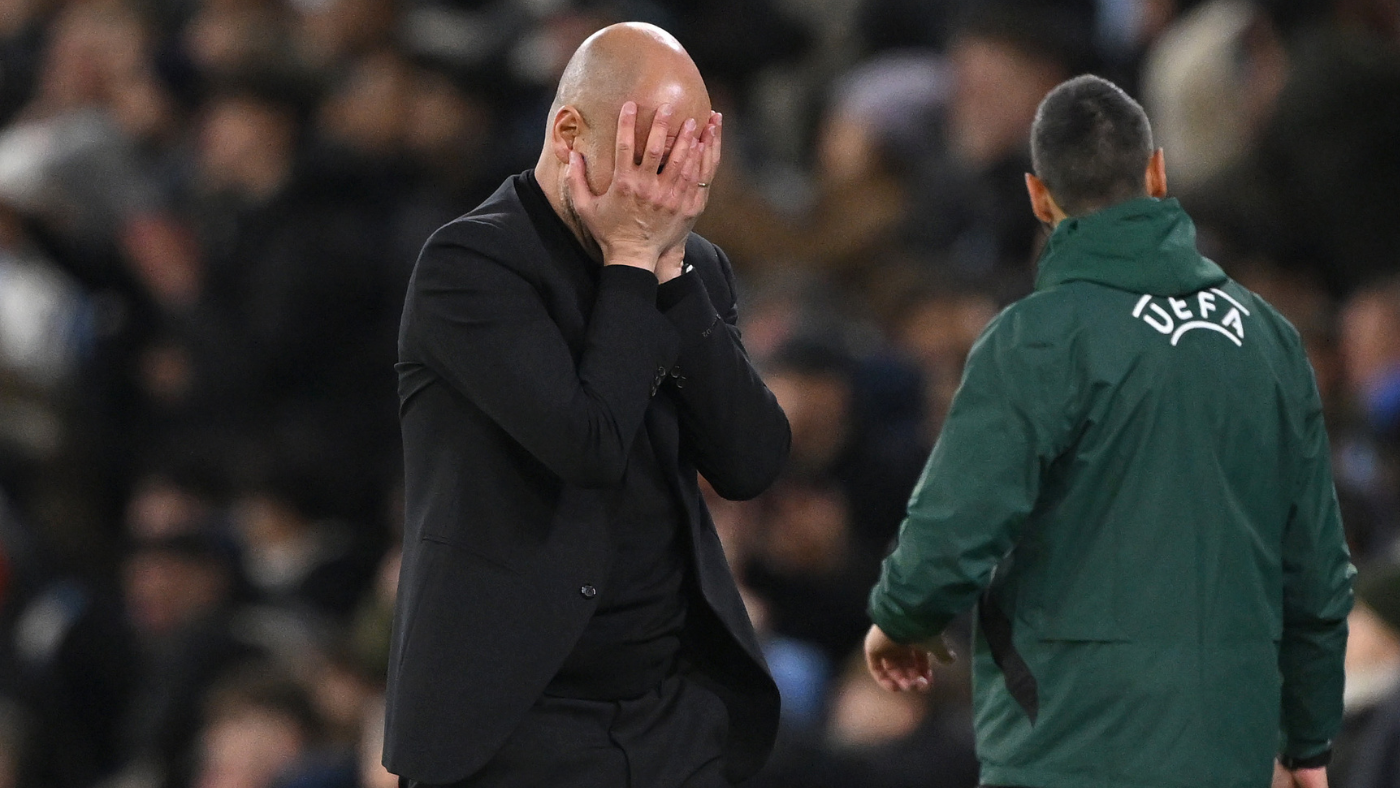Félix Hernández threw the last perfect game in 2012; MLB is in the midst of its longest drought in 40 years

Monday marks the 10th anniversary of one the game’s most memorable recent feats.
Below is the final out of the perfect game twirled by Seattle Mariners legend Félix Hernández on Aug. 15, 2012. Hernández’s historic gem against the Tampa Bay Rays on that day was just the 23rd recognized perfect game ever and just the 21st since the modern American League-National League era began in 1903. What makes this anniversary even more notable is that Hernández’s 2012 perfecto is the last perfect game to be thrown in Major League Baseball.
Yes, we’ve achieved several examples of almost-perfection over the last decade — including Drew Rasmussen‘s near miss on Sunday — but the perfect game itself has remained elusive. Let’s put the current perfect game drought in some historical context by looking at the time elapsed between each of those 23 perfect games:
|
Lee Richmond, Worcester Worcesters |
Cleveland Blues |
June 12, 1880 |
– |
|
John Montgomery Ward, Providence Grays |
Buffalo Bisons |
June 17, 1880 |
5 days |
|
Cy Young, Boston Americans |
Philadelphia Athletics |
May 5, 1904 |
23 years, 10 months, 23 days |
|
Addie Joss, Cleveland Naps |
Oct. 2, 1908 |
4 years, 4 months, 27 days |
|
|
Charlie Robertson, Chicago White Sox |
April 30, 1922 |
13 years, 6 months, 28 days |
|
|
Don Larsen, New York Yankees |
Brooklyn Dodgers |
Oct. 8, 1956 |
34 years, 5 months, 8 days |
|
Jim Bunning, Philadelphia Phillies |
June 21, 1964 |
7 years, 8 months, 13 days |
|
|
Sandy Koufax, Los Angeles Dodgers |
Sept. 9, 1965 |
1 year, 2 months, 19 days |
|
|
Catfish Hunter, Oakland Athletics |
May 8, 1968 |
2 years, 7 months, 29 days |
|
|
Len Barker, Cleveland Indians |
May 15, 1981 |
13 years, 7 days |
|
|
Mike Witt, California Angels |
Sept. 30, 1984 |
3 years, 4 months, 15 days |
|
|
Tom Browning, Cincinnati Reds |
Los Angeles Dodgers |
Sept. 16, 1988 |
3 years, 11 months, 17 days |
|
Dennis Martínez, Montreal Expos |
Los Angeles Dodgers |
July 28, 1991 |
2 years, 10 months, 12 days |
|
Kenny Rogers, Texas Rangers |
California Angels |
July 28, 1994 |
3 years |
|
David Wells, New York Yankees |
May 17, 1998 |
3 years, 9 months, 20 days |
|
|
David Cone, New York Yankees |
Montreal Expos |
July 18, 1999 |
1 year, 2 months, 2 days |
|
Randy Johnson, Arizona Diamondbacks |
May 18, 2004 |
4 years, 10 months, 1 day |
|
|
Mark Buehrle, Chicago White Sox |
July 23, 2009 |
5 years, 2 months, 6 days |
|
|
Dallas Braden, Oakland Athletics |
Tampa Bay Rays |
May 9, 2010 |
9 months, 17 days |
|
Roy Halladay, Philadelphia Phillies |
Florida Marlins |
May 29. 2010 |
21 days |
|
Philip Humber, Chicago White Sox |
April 21, 2012 |
1 year, 10 months, 24 days |
|
|
Matt Cain, San Francisco Giants |
June 13, 2012 |
1 month, 24 days |
|
|
Félix Hernández, Seattle Mariners |
Tampa Bay Rays |
Aug. 15, 2012 |
2 months, 2 days |
Those first two 19th-century perfectos are counted since they occurred in the National League, but they should really be dismissed since the rules of play were significantly different in 1880. As noted, we’ve had just 21 perfect games in the modern era — i.e., since 1903, when the first AL-NL World Series was played. Not meeting the official definition of a perfect game are the efforts of Harvey Haddix of the Pittsburgh Pirates on May 26, 1959 and Pedro Martinez of the Montreal Expos on June 3, 1995. In Martinez’s case, he lost his perfect game in the 10th, and Haddix lost his in the 13th. That’s because the rules stipulate that a pitcher is credited with a perfect game only if he prevents any baserunners for the entire game even if that game stretches beyond the usual nine innings. Had Haddix’s and Martinez’s teammates provided them with a single run of support during the first nine innings, they’d be on the list above.
Please check the opt-in box to acknowledge that you would like to subscribe.
Thanks for signing up!
Keep an eye on your inbox.
Sorry!
There was an error processing your subscription.
As you may have already sussed out, we’re presently experiencing the longest perfect game drought since the early 1980s and the third-longest since 1900. So what gives? Well, it’s baseball, and the unsatisfactory answer is that it’s very likely just randomness at work. Yes, it’s been 10 years since we had a perfect game, but in 2010 alone we had three. From 2009 through 2012 we had six. In the 10 years since Hernández crafted history, nine pitchers have lost perfect game bids in the ninth inning (counting Rasmussen). That’s just how such things go in a sport like baseball, which is heavily influenced by luck be it good or bad.
Beyond that, you can argue that conditions over the last 10 years have been less conducive toward perfect games when compared to the sprawl of modern baseball history. In essence, a pitcher is competing against the opposing team’s on-base percentage when attempting to pitch a perfect game (fielding errors can also ruin a perfecto, of course). Since 1903 – the onset of the modern era – the league OBP has been .328. Since the start of the 2013 season, however, that figure has fallen to .319. In theory that should make perfect games more likely over the last 10 years than they have been across all 119 years of the modern era. Again, the luck and randomness native to baseball are the real drivers.
Obviously, someone will break through at some point and pitch the next perfect game – maybe it’ll even happen this season. Until then, though, Hernández’s appointment with history remains the last one that any moundsman has managed to keep. Meantime, the drought grows day by day, game by game.





